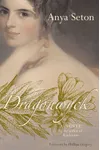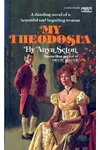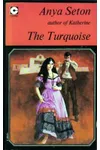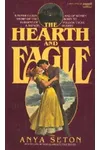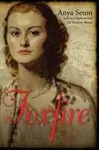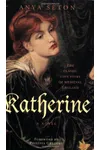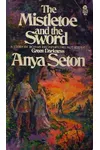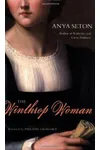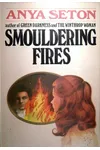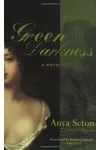Picture an American storyteller who spun history into spellbinding tales of romance and adventure—meet Anya Seton! Born Ann Seton in 1904, she transformed the historical novel with her vivid, meticulously researched 'biographical novels.' From the gothic allure of Dragonwyck to the timeless love story of Katherine, Seton’s works whisk readers to bygone eras, blending fact with unforgettable drama.
Her unique ability to breathe life into historical figures made her a literary icon, captivating readers from the 1940s to today. Ready to dive into the world of a woman who turned history into high romance? Let’s explore Anya Seton’s extraordinary journey!
The Making of Anya Seton
Anya Seton was born on January 23, 1904, in New York City, the daughter of two remarkable writers: Ernest Thompson Seton, a naturalist and Boy Scouts of America co-founder, and Grace Gallatin Seton, a suffragist and travel writer. Raised in the Connecticut towns of Cos Cob and Greenwich, Anya’s privileged childhood was filled with travel and private tutors, culminating in her graduation from Spence School in 1921. Her parents’ literary legacy sparked her imagination, but it wasn’t until her late 30s that she embraced writing, adopting the pen name Anya to carve her own path.
Married at 19 to Rhodes scholar Hamilton Cottier, and later to investment counselor Hamilton Chase, Anya balanced family life with her burgeoning career. Her first novel, My Theodosia, published in 1941 at age 37, marked the start of a prolific journey that would redefine historical fiction.
Anya Seton’s Unforgettable Stories
Seton’s novels are celebrated for their exhaustive research and vivid storytelling, often focusing on strong female protagonists navigating love and history. My Theodosia (1941) explores the tragic life of Aaron Burr’s daughter, weaving an emotional tale of loyalty and loss. Dragonwyck (1944), a gothic romance set among Dutch patroons in 19th-century New York, became a Hollywood film, showcasing Seton’s knack for atmospheric drama.
Her masterpiece, Katherine (1954), chronicles the real-life romance between Katherine Swynford and John of Gaunt in 14th-century England. Praised for its historical depth and emotional resonance, it remains a benchmark for historical romance, ranking in the BBC’s 2003 'The Big Read' top 100. The Winthrop Woman (1958) follows Elizabeth Fones, a Puritan woman defying 17th-century Massachusetts norms, highlighting Seton’s ability to blend feminist themes with historical accuracy.
Seton’s style merges meticulous detail with sweeping romance, often set in England or America. Her later works, like Green Darkness (1972), dabble in reincarnation, adding a mystical layer to her historical tapestry. Each novel feels like a time machine, immersing readers in richly crafted worlds.
Why Anya Seton Matters
Anya Seton revolutionized historical fiction by prioritizing authenticity and emotional depth, paving the way for authors like Philippa Gregory, who wrote forewords for Seton’s reissued novels. Her ability to humanize historical figures, especially women, resonated with readers, making her books bestsellers and cultural touchstones. Novels like Dragonwyck and Foxfire inspired Hollywood adaptations, cementing her influence beyond the page.
Today, Seton’s works remain beloved, with Katherine and The Winthrop Woman still in print, inspiring new generations of historical fiction fans. Her legacy lies in her fearless storytelling, blending rigorous research with heart-pounding romance, proving history can be as thrilling as any modern saga.
- Born: January 23, 1904, New York City
- Died: November 8, 1990, Old Greenwich, Connecticut
- Key Works: My Theodosia, Dragonwyck, Katherine, The Winthrop Woman
- Notable: Her novel Katherine ranked 95 in the BBC’s 2003 'The Big Read' poll
Snag Katherine or Dragonwyck and dive into Anya Seton’s captivating world of historical romance! Whether you’re a history buff or a hopeless romantic, her stories will sweep you away.
